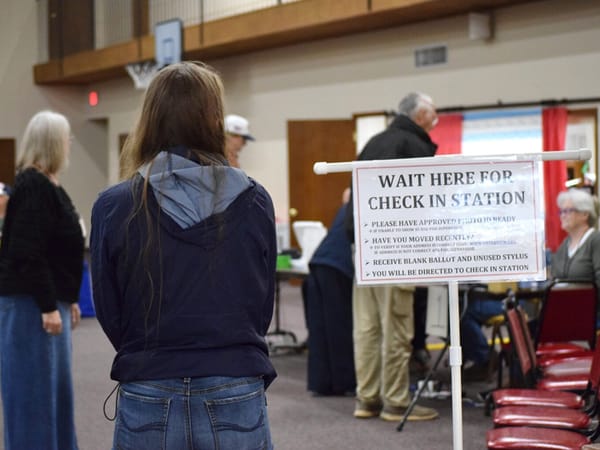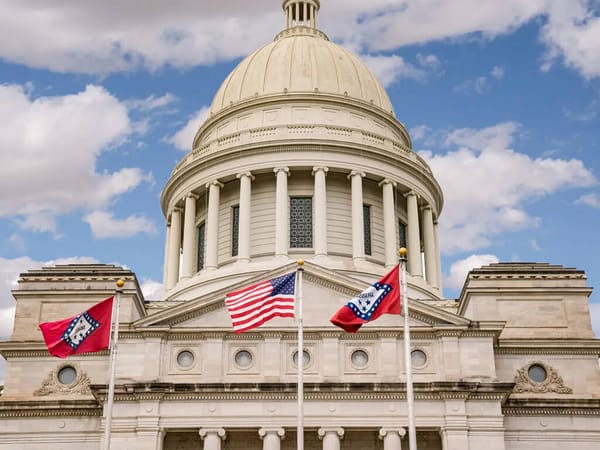Grief, Anger, and a Nation Split: The Week Since Charlie Kirk Was Killed
One week after Charlie Kirk’s fatal shooting in Utah, Arkansas mourns as political divisions across the U.S. intensify. Vigils and public debate highlight the national impact of his death.

It has been one week since Charlie Kirk, only 31, a prominent right-wing activist known for championing Christian conservatism, American values, support for Israel, and his close ties to President Donald Trump, was shot and killed on September 10 while speaking at Utah Valley University.
The shooting took place in front of both live and online audiences. Video clips of the incident spread rapidly across social media, reaching viewers in areas where Kirk was not widely known.
President Trump and numerous politicians publicly mourned Kirk’s death, but the incident soon escalated into a wider political controversy. Different groups used the tragedy to advance their own narratives. Conservatives pointed to what they viewed as hostility from liberals and an effort to silence the values Kirk championed. Some Democrats highlighted the irony of a gun control opponent being killed by a firearm. Left-leaning commentators mocked the event and described it as retribution. Certain Palestine supporters framed it as divine punishment for Kirk’s outspoken support of Israel.
What began as a shocking act of violence has since become a flashpoint in national politics.
The Suspect and Political Fallout
Authorities identified the suspect as 22-year-old Tyler Robinson, who was reportedly in a relationship with a man transitioning his gender. While Robinson had no significant criminal record, investigators noted his strong political views and deep hostility toward Kirk’s campaigns.
What was meant to silence Kirk instead amplified his influence. In death, he has become a powerful symbol of Christian values and American patriotism, with supporters portraying him as an even stronger figure than during his lifetime.
Kirk’s allies have increasingly framed his opponents as representatives of the political left, channeling public anger toward them. President Trump, mourning the loss of a close ally, posthumously awarded Kirk the Medal of Valor.
In Washington, the U.S. House passed a resolution honoring Kirk, gaining support even from some Democrats. Ninety-five Democrats voted in favor, 58 opposed, 38 voted present, and 22 did not vote. Introduced by House Speaker Mike Johnson and co-sponsored by 165 Republicans, the resolution praised Kirk as a “Courageous American patriot” who sought to “Elevate truth, foster understanding, and strengthen the Republic.” The bipartisan backing, despite sharp political divides, underscored how his death has elevated his profile.
Calls for Accountability
Following Kirk’s killing, members of the Trump administration and Republican lawmakers urged the public to confront anyone seen as “Celebrating” his death. Senator JD Vance stated, “Call them out, and hell, call their employer. We don’t believe in political violence, but we do believe in civility.”
Conservative activists began highlighting social media posts they viewed as mocking or inappropriate. Employers were pressured to act, leading to suspensions and disciplinary measures across multiple sectors, including media, academia, entertainment, health care, and airlines.
The public reaction remained polarized. Liberals argued that such measures undermined free speech and First Amendment rights. Many conservatives countered that celebrating Kirk’s death crossed moral boundaries. Conservatives also criticized mainstream news outlets, accusing them of downplaying the story and applying double standards.
Democrats, while denouncing the killing, faced internal debate about how to respond politically. Some feared the backlash was being used against them and braced for additional challenges once the mourning period passed.
How Arkansas Responded
Kirk’s death resonated strongly in Arkansas, a Republican-dominated state where Democrats hold influence primarily in urban areas. Vigils, prayer gatherings, and public commemorations were held statewide.
On Thursday, marking one week since the shooting, more than a thousand Arkansans lit candles and prayed for Kirk’s family and for the country.
Tensions were evident across Arkansas. In Bentonville, two women vandalized a memorial to Kirk at the Benton County Courthouse. Supporters quickly rebuilt the display, but the incident sparked widespread backlash online. An Arkansas law professor also drew criticism for making provocative remarks. He has since been suspended with pay, a decision Kirk’s supporters argue is far too lenient.
In Fort Smith, Ward 2 Director Andre Good faced mounting pressure to resign after leaving a city board meeting during a moment of silence held in Kirk’s memory.
A Test of the National Mood
Kirk’s killing and the reactions to it have become a measure of America’s widening political and cultural divide. The backlash against left-leaning voices is highly visible, fueled by strong online support for conservatives who are using Kirk’s image to rally public backing. Every online comment is being closely scrutinized, and critics warn that the line between free expression and hateful rhetoric is increasingly blurred. Liberal ideologies are facing sharp pushback, while Christian values are being elevated as a unifying force. The conflict is no longer simply Democrats versus Republicans but rather liberalism versus conservatism.
In Arkansas and across the nation, mourning continues. Yet alongside the grief, the political clash sparked by Kirk’s death shows no signs of easing.





